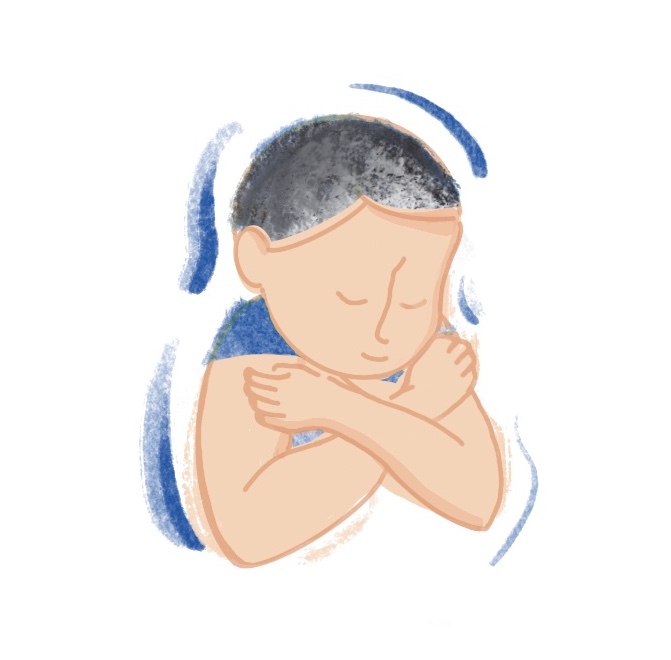Special Issue - Opening to self-care: Learning from mental health professionals
It is not new news that many academics are exhausted from all kinds of research and teaching duties. Long waiting times for funding results, meeting students’ needs, and even working in the lab could be emotionally demanding. Like academics, mental health professionals deal with high workload and often take care of others’ emotional needs. So, what can we learn from them?

Bionote:
Sarah Ng is the founder and director of Epicloud Health and Diversity, U.K., which specialises in mindfulness training and research with a focus on the use of language and imagery in mindfulness. She studies the mind-body connection and its role in emotion regulation over 15 years. Her latest research focuses on how individuals regulate their anxiety through cognitive reappraisal and expressive suppression and how power and stigma influence the improvement of mental health in academia. She is on the committee of the British Psychological Society's (BPS) South West Branch and an ambassador of COST's 'Action Researcher Mental Health Observatory.
Mental health professionals have shown me that one type of quality self-care practice is more effective and accessible (though not easier) than what most academics might think: mindfulness. At a conference in June this year, I had the opportunity to meet academics from various disciplines, including AI, business, psychology and others. When I mentioned mindfulness as a health-promoting activity, many expressed skepticism and said the research methods in mindfulness are questionable. Interestingly, although the word mindfulness raises questions, there are many success stories on the front lines of mental health professionals.
A few months after the conference, I attended a prestigious two-day suicide intervention training. Most of the thirteen practitioners reported practicing mindfulness for self-care. At least two of them said they survived personal trauma by learning to be mindful, that is, by being more aware of the thoughts, feelings, and sensations that arise in the moment, by observing them and not judging them.
I wonder why there is such a difference between academics and mental health professionals when it comes to mindfulness as a form of self-care. Indeed, skepticism among academics towards mindfulness has been reflected in recent research (Lemon & McDonough, 2018; Stofleth & Manusov, 2019). Perhaps that skepticism stems from the mind-body divide seen among academics. According to Sir Ken Robinson in his acclaimed TED talk “Do Schools Kill Creativity?” In 2006, academics viewed their bodies as a form of transportation for their heads. As a (runaway) academic, I can hardly disagree with that.
Being skeptical is part of the scientific training, and to be honest, mindfulness is overhyped in the “McMindfulness” industry (Choi et al., 2021; Hayes & Plumb, 2007). However, it is important to be open to the growing scientific evidence that mindfulness can help with the mental health crisis in academia. Elizabeth Blackburn, one of the 2009 Nobel Laureates in Physiology and Medicine, identified links between mindfulness and telomere length, a biomarker for human aging and longevity.

Other neuroscience research and meta-analyses of psychometric studies have shown that nurturing mindfulness can mediate changes in brain structures that reduce anxiety and depression (Tang, 2015). Mindfulness research needs more work, but as long as the scientific data is not clear, there is no harm in putting the method into practice, under the guidance and care of experienced people. In the meantime, scientific research into mindfulness, like other types of research, such as weighing the benefits and risks of caffeine, is likely to continue to evolve despite controversies. As Elizabeth Blackburn noted, academics have yet to embrace research into health interventions rooted in religious and spiritual practices, such as mindfulness. Science and religion may seem contradictory, but they are not mutually exclusive.
We talk about the benefits of being open to breakthroughs in science and technology. Let's do the same in our self-care. Mindfulness is about being aware and describing what it is. Take breaks from evaluating, criticizing and judging, and find ways to tune into your thoughts, feelings, and sensations. To deal with chronic stress, refresh yourself regularly at a deep level and connect with the core of yourself in a compassionate way.
You are much more than impact factors, rankings, and numbers of publications. Much of you is immeasurable: love, care, empathy, intuition, and more. It would be good to notice that.
Sarah Ng
Director and Researcher,
Epicloud Health and Diversity
sarah@epiclouding.com
References
Lemon, N., & McDonough, S. (2018). Mindfulness in the Academy: Practices and perspectives from scholars. Springer.
Stofleth, D., & Manusov, V. (2019). Talking about mindfulness: An ethnography of communication analysis of two speech communities. Language & Communication, 67, 45-54. https://doi.org/10.1016/j.langcom.2018.12.003Blackburn, E., & Epel, E. (2018). The telomere effect: A revolutionary approach to living younger, healthier, longer. Orion.
Choi, E., Farb, N. A., Pogrebtsova, E., Gruman, J., & Grossmann, I. (2021). What do people mean when they talk about mindfulness? Clinical Psychology Review, 89, 102085. https://doi.org/10.31234/osf.io/qwydx
Hayes, S. C., & Plumb, J. C. (2007). Mindfulness from the bottom up: Providing an inductive framework for understanding mindfulness processes and their application to human suffering. Psychological Inquiry, 18(4), 242-248. https://doi.org/10.1080/10478400701598314
Tang, Y.-Y., Hölzel, B. K., & Posner, M. I. (2015). The neuroscience of mindfulness meditation. Nature Reviews Neuroscience, 16(4), 213–225. https://doi.org/10.1038/nrn3916